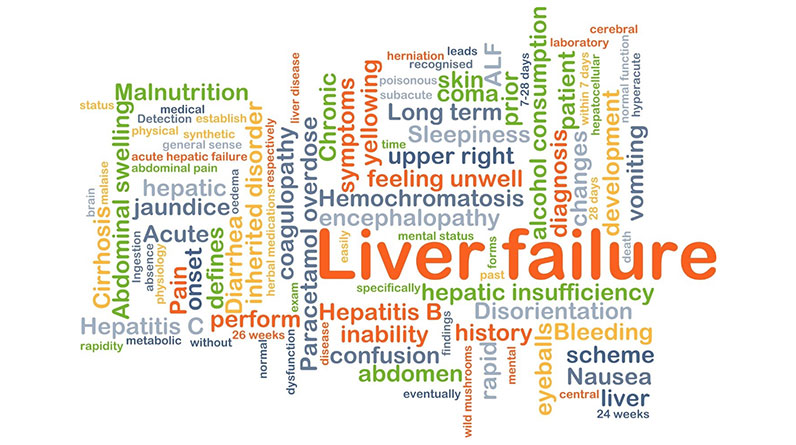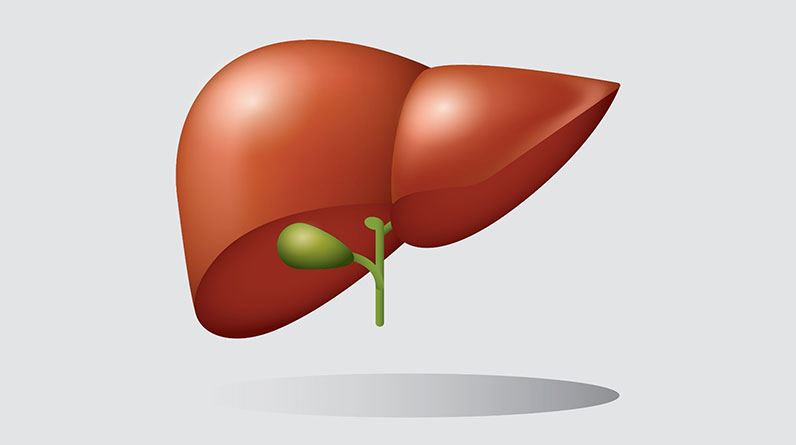
Liver Failure
Liver failure is a serious condition in which the liver loses its ability to perform its essential functions, such as detoxifying harmful substances, producing vital proteins, and regulating various metabolic processes.
This condition can be acute, developing rapidly over days or weeks, or chronic, progressing over months or years due to long-term liver damage.
One of the key aspects of liver failure is the accumulation of ammonia, a toxic byproduct of protein metabolism, which the failing liver cannot adequately process. Elevated ammonia levels can lead to hepatic encephalopathy, a serious neurological condition characterized by confusion, altered level of consciousness, and, in severe cases, coma.
Learning about liver failure, its causes, symptoms, and treatment options is crucial for early detection and effective management. In what follows, we’ll discuss the important aspects of this life-threatening condition.
Ammonia and Hepatic Encephalopathy
In liver failure, the liver’s inability to effectively detoxify harmful substances leads to the accumulation of ammonia, a byproduct of protein metabolism. Under normal circumstances, the liver converts ammonia into urea, which is then excreted by the kidneys.
However, when the liver fails, this process is disrupted, resulting in elevated levels of ammonia in the bloodstream. High ammonia levels are particularly detrimental to the brain and can lead to hepatic encephalopathy (HE), a serious complication of liver failure.
Hepatic encephalopathy is a decline in brain function that occurs as a result of severe liver disease. The buildup of ammonia and other toxins that the liver can no longer filter out leads to a range of neurological and psychological symptoms. The symptoms of HE can vary widely, from mild cognitive impairments to severe neurological dysfunction.
The stages of hepatic encephalopathy are classified into four grades:
- Grade 1: Mild symptoms, including slight changes in behavior, confusion, shortened attention span, and mood changes. Patients may experience mild coordination issues and difficulty with complex tasks.
- Grade 2: Moderate symptoms, such as more pronounced confusion, lethargy, disorientation, inappropriate behavior, and noticeable personality changes. Patients may exhibit asterixis, which is a flapping tremor of the muscles in the body.
- Grade 3: Severe symptoms, including marked confusion, incoherent speech, somnolence, and the inability to perform basic tasks. Patients may also be extremely sleepy but can be aroused.
- Grade 4: The most severe stage, where patients slip into a coma and are unresponsive to stimuli. This stage is life-threatening and requires immediate medical intervention.
The management of hepatic encephalopathy involves reducing the production and absorption of ammonia. This can be achieved through dietary modifications to limit protein intake, the use of medications such as lactulose (which helps to reduce ammonia levels by altering the pH of the colon and promoting the excretion of ammonia through the stool), and antibiotics like rifaximin, which decrease the production of ammonia by gut bacteria.
Understanding the role of ammonia and the progression of hepatic encephalopathy is crucial for diagnosing and treating liver failure effectively. Early recognition and intervention can significantly improve patient outcomes and quality of life.
Treatment and Management
Effective management of liver failure focuses on reducing ammonia production, managing the underlying liver disease, and supportive care.
The effective implementation of these methods leads to the best individual outcomes and can prevent further complications.
Reducing Ammonia Production Through Lifestyle
One of the primary goals in managing liver failure is to reduce the production of ammonia, a toxic byproduct of protein metabolism that the failing liver cannot adequately process. Lifestyle changes play a significant role in achieving this.
Dietary modifications such as adjusting protein intake to minimize ammonia production without causing malnutrition can be implemented. Regular physical activity, tailored to the patient’s overall health and liver function, can also support metabolic processes and improve overall well-being.
Finally, individuals must avoid alcohol entirely, as it can further damage the liver and exacerbate ammonia buildup. Also, it is important to stay hydrated to manage toxins properly.
Managing Underlying Liver Disease Through Medication
Medications are are often utilized to manage the underlying causes of liver failure. For instance, antiviral medications are prescribed for viral hepatitis, while corticosteroids may be used for autoimmune liver diseases. In cases of alcohol-related liver disease, medications that reduce cravings and assist with alcohol abstinence are crucial.
Lactulose is commonly prescribed to specifically target ammonia reduction. This synthetic sugar alters the colon’s pH, promoting ammonia excretion through the stool. Additionally, rifaximin, an antibiotic, reduces the number of ammonia-producing bacteria in the gut.
Seeking Supportive Care
Supportive care is essential for managing the symptoms and complications of liver failure. This includes regular follow-ups with a hepatologist, who can monitor liver function and adjust treatment plans as necessary.
In advanced cases, liver transplantation may be the only viable option. Patients with end-stage liver disease are evaluated for transplantation eligibility, and those who qualify are placed on a transplant waiting list.
Pre- and post-transplant care involves a multidisciplinary team to manage the complex medical, psychological, and social aspects of liver transplantation.
Patients and their families should also seek psychological and emotional support, as living with liver failure can be challenging. Support groups, counseling, and educational resources can provide valuable assistance and improve quality of life.
Liver failure is a critical condition requiring prompt and comprehensive management to prevent severe complications and improve patient outcomes. Preventative measures to keep this condition from occurring are essential.
Early detection and management of liver conditions, maintaining a healthy lifestyle, regular medical check-ups, and avoiding harmful substances are some of these important measures to prevent liver failure.



